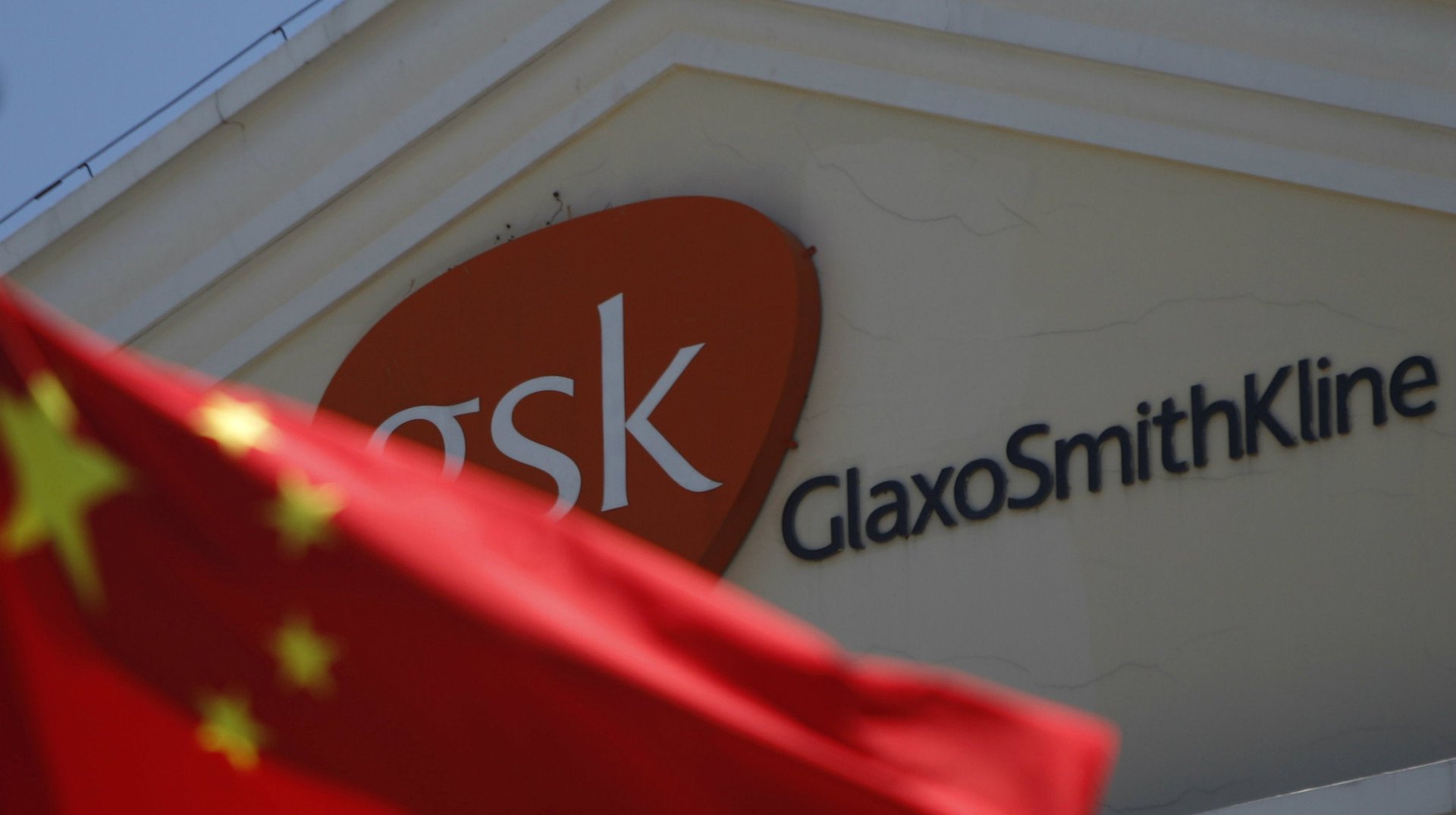China is cracking down on foreign companies and a British pharma exec is its latest target
China’s ongoing investigations into corporate corruption and malfeasance have often focused first on foreign companies. Earlier this week, for example, Beijing handed out its largest fine ever for air pollution to a US joint venture.


China’s ongoing investigations into corporate corruption and malfeasance have often focused first on foreign companies. Earlier this week, for example, Beijing handed out its largest fine ever for air pollution to a US joint venture.
But today China’s Ministry of Public Security took an even more dramatic step, accusing a British pharmaceutical executive of “ordering his subordinates to commit bribery.” This is the first high-profile bribery accusation against a foreign executive since 2009, when an Australian executive from mining group Rio Tinto was charged with accepting kickbacks for iron ore deliveries.
Since Mark Reilly, GlaxoSmithKline’s ex-China chief, took the top China post in 2009, the company made several billion yuan in revenue thanks to bribes, officials said, by paying hospitals and doctors to peddle its drugs at inflated prices. “Glaxo’s acts of bribery penetrated all aspects of the company’s business operation,” Gao Feng, a Ministry of Public Security official, told the Wall Street Journal. The case will now be handed to Chinese prosecutors.
The accusations cap a months-long probe by Chinese police into alleged wrongdoing by GSK, part of a broader investigation into China’s pharma industry, where bribery is rampant. China’s state-run healthcare system is so severely underfunded that hospitals rely on drug sales—and kickbacks from drug companies and medical suppliers—to stay afloat, as Quartz has previously reported.
Last July, China’s state-run media ran a descriptive account of how GSK’s bribes worked, attributed to former GSK sales representatives, which accused the company of a wide range of transgressions, including employing a woman who attended to doctors’ “sexual desires.” Reilly returned to China from Britain last summer to help police with the investigation, company representatives said at the time. GSK had no comment on the accusations today.
With the charges against Reilly, “the Chinese government is showing that they’re upping the ante,” Kerry Brown, a former British diplomat in Beijing, told Bloomberg.
The charges against Reilly carry a maximum sentence of life in prison, Reuters reported, and Chinese prosecutors have proven before they won’t balk at sentencing foreign citizens for corporate crimes. In 2009, four Rio Tinto executives, including Chinese-born Australian citizen Stern Hu, were arrested on charges of spying and bribery. In 2010, Hu was sentenced to 10 years in jail. He remains in a prison outside Shanghai.